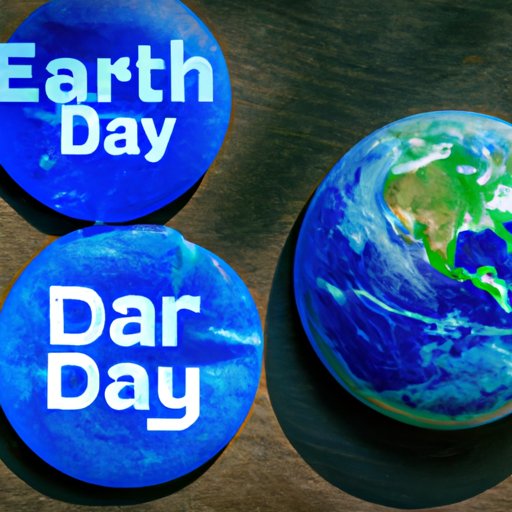Introduction
Earth Day is celebrated annually on April 22, and it is a day dedicated to promoting environmental awareness and encouraging action towards sustainability. First celebrated in 1970, Earth Day has inspired positive change and has become a global movement that continues to grow every year. In this article, we will explore why Earth Day is celebrated, its historical significance, its environmental impact, and what we can do as individuals to take action towards a sustainable future.
Historical Perspective
The origins of Earth Day can be traced back to the 1960s when the United States was undergoing an environmental awakening. Massive oil spills, smog, and polluted rivers had become the norm, and concern grew about the negative impact on human health and the environment. On April 22, 1970, Senator Gaylord Nelson organized a national teach-in on the environment, which laid the foundation for the first Earth Day. Millions of people across the country participated in rallies, marches, and educational events to raise awareness about environmental issues and call for action from the government.
The creation of Earth Day led to several legislative changes, including the Clean Air Act and the Clean Water Act, which helped to improve air and water quality. The event also sparked the creation of the Environmental Protection Agency, which continues to play a crucial role in protecting the environment today.
Environmental Significance
Earth Day is significant because it raises awareness about environmental issues and encourages sustainable actions. It serves as a reminder that we all have a role to play in protecting the planet, and it inspires individuals, organizations, and governments to take action. Earth Day has played a critical role in promoting sustainability by highlighting the importance of environmental conservation and reminding us that we live on a finite planet with limited resources.
Over the years, Earth Day has been used as a platform to address a range of environmental concerns, including deforestation, plastic pollution, and climate change. The event has led to global efforts to reduce carbon emissions and transition to renewable energy sources, such as wind and solar power.
Global Impact
Earth Day has become a global event with over 190 countries now participating in various activities and events. Many government officials and leaders have recognized the importance of Earth Day and have used it as an opportunity to promote environmental policies and initiatives. For example, in 2016, 175 countries signed the Paris Agreement, a global effort to combat climate change and limit global warming to below 2 degrees Celsius.
On Earth Day, various events and activities take place worldwide to promote environmental awareness and encourage sustainability. These include tree planting, community clean-ups, educational events, and rallies. Such events have led to positive changes such as increased public awareness, more recycling and composting, and the banning of single-use plastic.
Individual Responsibility
Individuals have a crucial role to play in promoting environmental sustainability, and Earth Day serves as a reminder that we all have a personal responsibility to protect the planet. We can all adopt small lifestyle changes that can make a significant impact, such as reducing our carbon footprint, consuming less meat, and using public transportation. It is also important to support sustainable businesses and products, reduce waste, and recycle and compost when possible.
Future Aspirations
Efforts to build on the success of Earth Day are ongoing, and many initiatives and campaigns are promoting sustainability. The United Nations Sustainable Development Goals set targets for global sustainable development, including goals such as zero hunger, clean water and sanitation, climate action, and responsible consumption and production. Many companies are seeking to reduce their carbon footprint and promote sustainable production. Additionally, new technologies and innovations are being developed to promote sustainability, such as electric cars, low-emission buildings, and renewable energy sources.
Conclusion
Earth Day is an important day that reminds us of the impact our actions can have on the planet. It has played a crucial role in promoting environmental awareness and encouraging positive change. As individuals, we all have a responsibility to take action towards a sustainable future, and Earth Day serves as a reminder that small steps can lead to significant progress. We can all take steps to reduce our carbon footprint and support a healthy planet. Let’s celebrate Earth Day every day by preserving the planet for generations to come.
